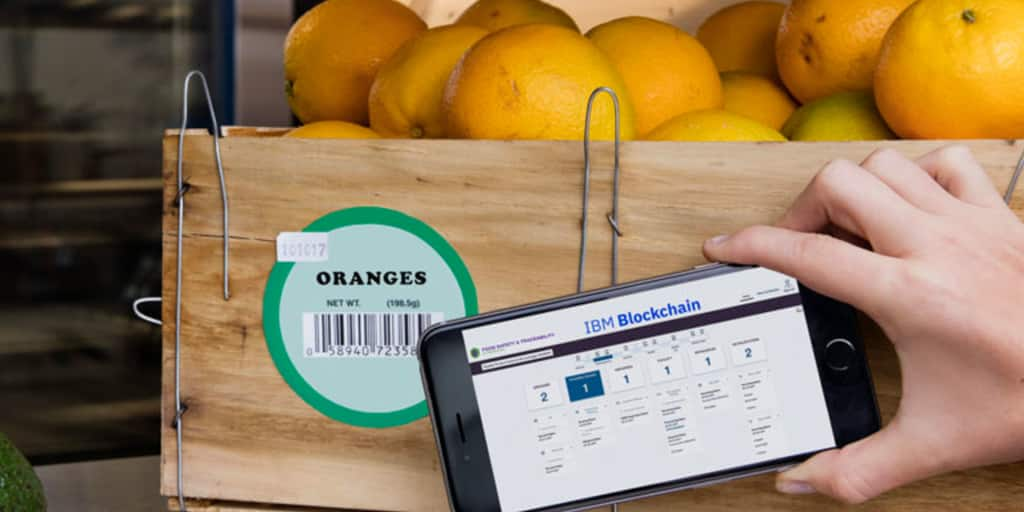
FutureVision is R/GA’s trend-spotting division. FutureVision helps keep you connected with the latest information, making it easy for you to stay informed.
In 2018, over 200 people in 36 US states were infected with E.coli from romaine lettuce, while salmonella outbreaks forced recalls in breakfast cereal, eggs, pre-cut melons, and raw turkey.
The ability to quickly trace a food-borne illness back to its source in the supply chain from farm to table would allow a retailer to eliminate the contaminated batch, analyze what went wrong, and prevent future outbreaks along with the unnecessary destruction of uncontaminated food. But speed is the operative concept here, and with traditional paper-based ledgers that many farmers, packing houses and warehouses use, it can take at least a week.
So it’s not surprising that Walmart is beginning to ask food producers (starting with leafy greens suppliers) to begin providing information using blockchain technology that will allow any future contamination to be traced to its source. By contributing to the digitized, secure public ledger technology, each supplier will enable Walmart to track food from the farm through to to washing and cutting stations, warehouses and, finally, the store. The food safety move follows an 18-month pilot in partnership with IBM and suppliers, who are expected to implement the technology by the fourth quarter of 2019.
As Walmart explained in a letter to its vendors, “There is no question that there is a strong public health and business case for enhanced food traceability. By quickly tracing leafy greens back to source during an outbreak using recent advances in new and emerging technologies, impacts to human health can be minimized, health officials can conduct rapid and more thorough root cause analysis to inform future prevention efforts, and the implication and associated losses of unaffected products that are inaccurately linked to an outbreak can be avoided.”
Blockchain technology is essentially a digitized, secure, public ledger or record-keeping technology that allows users to enter information into a chain. Once information is entered, other computers in its network are notified. Because the information is open and immutable, proponents say it’s difficult to falsify information. Although it’s been largely associated with cryptocurrencies like bitcoin, many see blockchain technology as crucial for tracing goods and services to improve supply chain management.
Frank Yiannas, Walmart’s vice president in charge of food safety, admits that he was once a blockchain skeptic, but has since had what he called a “religious conversion” to it, reports Computerworld. Although digitized databases exist that allow retailers to track food suppliers, Yiannas explained why blockchain is necessary for the world’s largest retailer.
“You don’t need blockchain to do that [track suppliers] with a handful of food products or SKUs. But, blockchain surely helps facilitate it if you have to do it on the scale of 50,000 to 70,000 SKUs. And you need it if you want to do it in a shared and distributed food system where these food system players are also doing business with other retailers and food service organizations,” he told Computerworld.
“The food system is pretty big, distributed, and decentralized,” Yiannas continued. “It’s not as simple and linear as we think. So that’s one of the reasons blockchain is a good solution, because it is distributed and decentralized in nature.”
Last year, Walmart conducted a pilot program using sliced mangos and pork from China to test blockchain. It took seven days for employees to find the Mexican farm that grew the fruit using paper ledgers, which Yiannas told Computerworld is the way a lot of “traceability events—when a food product is handed off from one party to another” occurs. Using blockchain software, however, the Yiannas and his team were able to trace the mangos’ supplier in just seconds.
Walmart is using IBM Food Trust, developed for consumer companies to track products moving through the supply chain. One of blockchain’s notable attributes is that there isn’t a centralized authority in charge of the data; it automatically updates as users input information.
While other companies are exploring new applications for Blockchain—Microsoft and Ethereum want to use it for industries including financial trading and music rights, for instance—Walmart’s blockchain-enabled Food Traceability Initiative is a major seal of approval for the technology. “It is the first real instance of doing this at scale,” Brigid McDermott, vice president of IBM Blockchain, commented to the New York Times.
Are we at a tipping point now in which blockchain is a viable platform for business, now that Walmart, numerous banks and other companies are investing in blockchain?
“The big use case for blockchain is shipping logistics,” says Joshua Daghir, Strategist, Venture Studio, R/GA. “But it’s definitely not a viable platform yet. There are lots of scaling limitations that developers are figuring out. It’s very much still in pilot stage for anything other than cryptocurrencies.”
Yiannas, for his part, is focused on making sure that it rolls out smoothly, and in a way that is “user-friendly and low cost” for farmers, who may use a smart device to capture information about their harvests.
It also doesn’t replace other food safety measures. As Walmart’s letter to its leafy green vendors spells out, “while blockchain-enabled traceability will greatly increase the ability to trace leafy greens back to their source, it does not replace or reduce the need for your adherence to leading-edge Good Agricultural Practices.”
http://futurevision.rga.com
